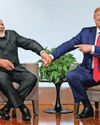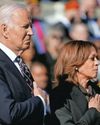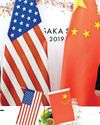Imran has the army and the young voters on his side. He hopes for peace with India, and is keen on ending Pakistani dependence on western aid and on ensuring its economic progress. He appeals to Pakistan’s sense of dignity. In the time of hypernationalism, he fits the bill, like Donald Trump

Imran Khan had gone to buy some medicines when he saw an old man holding a prescription. He thought the man had the same look that he had, whenever he saw his mother, a cancer patient, in pain. The man handed over the slip to the pharmacist. But, when he heard the price, he just walked out. His brother was dying of cancer. The old man’s desperate face remained etched in Imran’s memory for years.
In his autobiography, All Round View, Imran wrote that corruption was institutionalised in Pakistan. “Because of inflation, salaries have fallen behind, and it is partly for this reason that corruption has become so much a part of our life…. A revolutionary change in our social structure—especially in economic terms—is needed if we are to rid ourselves of this menace.”
This was 1988. Imran had come out of retirement, at the behest of Pakistan president Zia-ul-Haq. He led Pakistan on a tour to the West Indies and drew the Test series 1-1. For the first time in a decade, the West Indies had lost a Test at home.
Back then, there was no political career in sight for Imran. Thirty years later, however, he is embarking upon a tougher, more ambitious, yet less glamorous career, as prime minister of Pakistan.
Things have changed for Imran. But, not for Pakistan. For young Pakistanis, Imran and his party, the Pakistan Tehreek-e-Insaf, represent hope. He has listed several things under his slogan of tabdeli (change), including corruption and the anguish over the lack of money for education and healthcare. There is even a mention of the British National Health Service, a model that he wants to implement in Pakistan. All those who are quick to describe him as a playboy forget that Imran spent more than two decades struggling to be a successful politician.
هذه القصة مأخوذة من طبعة August 12, 2018 من THE WEEK.
ابدأ النسخة التجريبية المجانية من Magzter GOLD لمدة 7 أيام للوصول إلى آلاف القصص المتميزة المنسقة وأكثر من 9,000 مجلة وصحيفة.
بالفعل مشترك ? تسجيل الدخول
هذه القصة مأخوذة من طبعة August 12, 2018 من THE WEEK.
ابدأ النسخة التجريبية المجانية من Magzter GOLD لمدة 7 أيام للوصول إلى آلاف القصص المتميزة المنسقة وأكثر من 9,000 مجلة وصحيفة.
بالفعل مشترك? تسجيل الدخول

The female act
The 19th edition of the Qadir Ali Baig Theatre Festival was of the women and by the women

A SHOT OF ARCHER
An excerpt from the prologue of An Eye for an Eye

MASTER OF MAKE-BELIEVE
50 years. after his first book, Jeffrey*Archer refuses to put down his'felt-tip Pilot pen

Smart and sassy Passi
Pop culture works according to its own unpredictable, crazy logic. An unlikely, overnight celebrity has become the talk of India. Everyone, especially on social media, is discussing, dissing, hissing and mimicking just one person—Shalini Passi.

Energy transition and AI are reshaping shipping
PORTS AND ALLIED infrastructure development are at the heart of India's ambitions to become a maritime heavyweight.

MADE FOR EACH OTHER
Trump’s preferred transactional approach to foreign policy meshes well with Modi’s bent towards strategic autonomy

DOOM AND GLOOM
Democrats’ message came across as vague, preachy and hopelessly removed from reality. And voters believed Trump’s depiction of illegal immigrants as a source of their economic woes

WOES TO WOWS
The fundamental reason behind Trump’s success was his ability to convert average Americans’ feelings of grievance into votes for him

POWER HOUSE
Trump International Hotel was the only place outside the White House where Trump ever dined during his four years as president

DON 2.0
Trump returns to presidency stronger than before, but just as unpredictable